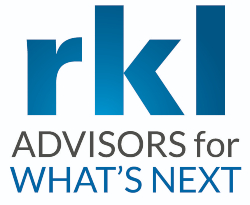Understanding the Evolving Landscape of BOI Reporting Requirements

Beneficial ownership information (BOI) reporting was set to kick off in 2024, but in an unexpected turn of events, a federal court in Alabama ruled the Corporate Transparency Act as unconstitutional, leaving many small businesses unclear on how to proceed with BOI reporting requirements.
Originally passed in 2020, the act aims to capture more information from owners to reduce terrorist financing and money laundering. Under the law, existing businesses in the United States had until January 1, 2025, to file a BOI report to the Financial Crimes Enforcement Network (FinCEN). However, many businesses now find themselves with more questions surrounding the reporting requirements.
Along with the legal uncertainty surrounding reporting requirements, a new danger has emerged: the rise of aggressive schemes designed to take advantage of businesses required to file.
Below, we navigate the latest developments around BOI reporting requirements, highlighting the critical information that may impact you.
Do I Still Need to File?
While the current ruling struck down the act, it is expected that this will continue to be debated in the court system over the next year. Existing companies may want to delay filing their BOI report to FinCEN until there are further legal developments surrounding the Corporate Transparency Act.
For new entities established in 2024, they may still want to continue filing reporting within 90 calendar days of its creation. FinCEN has specified that it will not be enforcing the new filing against the specific Plaintiffs of Alabama. New businesses should consult their legal advisor to determine if they should continue to report within the original 90-day period to avoid penalties for non-compliance.
What Schemes Should Business Owners Be Aware Of?
Business owners have been targeted through fraudulent attempts to collect information and money through various methods, including QR codes, hyperlinks, and fraudulent forms. Often, these schemes ask owners to submit a fee to process their BOI reports and comply with these new requirements.
As a reminder, FinCEN does not send unsolicited requests to business owners, and all filings are completed online. Business owners are encouraged not to click, scan, or respond to any filing requests. Most importantly, BOI reporting is a free informational filing, so any costs associated with processing should be a red flag that this is a scam attempt.
How Do Business Owners Determine if These Schemes Are Legitimate?
Safeguarding yourself against potential scams, like a fraudulent form, starts with paying close attention to the facts before making a costly mistake. It is important to avoid rushing to judgment and providing sensitive information to the wrong parties.
One of the most popular schemes targeting business owners is fraudulent forms from a purported United States agency called the “United States Business Regulations Department.” This is not a legitimate government agency and, instead, is a fake entity that scammers use to instill fear in owners who need to file a BOI report.
These same forms also typically request business owners to pay a filing fee by a specific deadline to avoid paying penalties. Not only is there no fee required by FinCEN to file your report, but a majority of business owners have until the end of this year to file.
Who Should Business Owners Contact if They Are the Target of a Scheme?
Scammers can be aggressive in how they target business owners needing to file BOI reports. If you think your company is being targeted by one of their schemes, do not engage or provide any information. It’s encouraged to disregard any of these attempts. Still, business owners can contact the Better Business Bureau’s Scam Tracker or the FBI’s Internet Crime Complaint Center to report their experience and prevent others from being targeted.
In these uncertain times, understanding the recent rulings and critical information relating to BOI reporting requirements is your first line of defense against these schemes. If you have any questions regarding current reporting guidelines, contact your trusted RKL advisor for a list of resources to help you and your business fulfill reporting requirements.
________________

Kirsten T. Deeds, CPA, MBA, International Tax Practice Leader at RKL, has nearly two decades of experience in international tax and provides specialized services, including U.S. taxation of foreign earnings, ASC 740 tax provision work, corporate U.S. and Canadian compliance, due diligence for mergers and acquisitions, and transfer pricing.
Connect With Your Community
Subscribe to stay informed!
"*" indicates required fields














![95000-1023_ACJ_BannerAd[1]](https://vista.today/wp-content/uploads/2023/03/95000-1023_ACJ_BannerAd1.jpg)





































